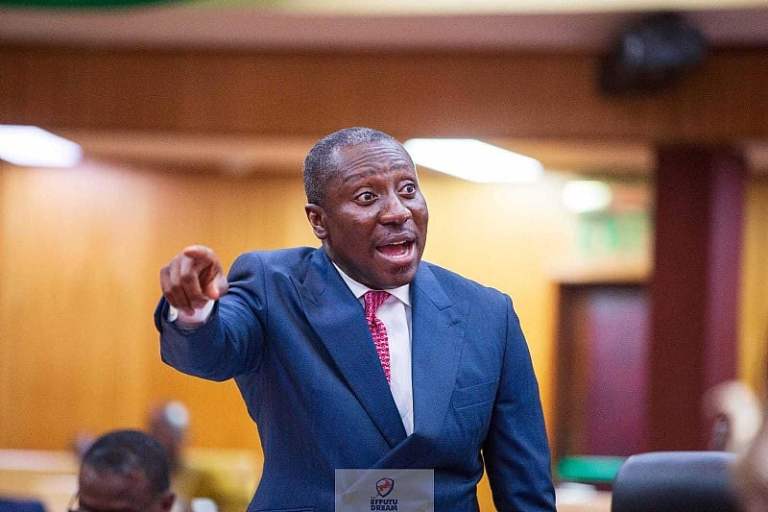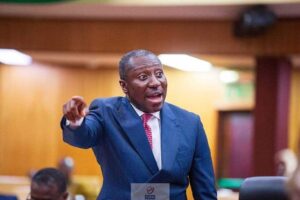Majority leader challenges opposition NDC to build on Akufo- Addo’s foundation that’s working for Ghana:

In the final act of President Akufo-Addo’s tenure, as the echoes of his State of the Nation address faded, Afenyo Markins, the NPP Majority Leader, stepped forward not just as a defender of a legacy, but as a challenger of the opposition.

His focus was clear: the nation, under Akufo-Addo, was not a failure, but a “working Ghana,” and he dared the opposing NDC, often referred to as the “Umbrella,” to prove they could do better while his party keenly observed.
Markins wasn’t interested in simply recounting achievements; he was setting a stage. “This is a working Ghana,” he asserted, his voice resonating with the weight of his conviction. He had heard the criticisms, the claims of economic hardship and failed promises, but he presented a different narrative.
He spoke of an economy set in motion, of a health sector revived, of a nation secure, and of an education system transformed.
His emphasis on “working” was strategic. He was not only defending Akufo-Addo’s record but also positioning the opposition for scrutiny. “We are being told that there is a new hope,” he acknowledged, a hint of skepticism coloring his tone. “That’s no problem. It is yet to take over.” The message was clear, the onus was now on the NDC to not only claim change but to demonstrably improve upon the foundation that had been laid.
Markins then issued his challenge, a clear demarcation of his party’s role in the upcoming political landscape: “We would be watching you for the next four years.” It wasn’t a passive observation. It was a pledge of active engagement, an eagle-eyed vigilance to ensure that the “umbrella” did not falter in its promises. He was essentially holding the NDC to the very standards they had claimed Akufo-Addo failed to meet, while suggesting their time is over.
He hinted at the perceived hollowness of the opposition’s promises, alluding to the “True colors of this umbrella,” as a way of expressing a view that the opposition cannot achieve anything better. Markins framed this challenge in a way that suggested not just a change of government, but a shift in responsibility. He seemed to be saying, “We’ve built the platform; now, let’s see if you can actually do better.”
The phrase, “a working Ghana,” served as both a defense and a taunt, encapsulating Markins’ stance. He was not willing to let the opposition seize the narrative uncontested. He wanted it known that the NPP was not leaving the stage defeated or discredited. They were stepping aside, yes, but with an eye on the future, ready to evaluate the incoming administration against the very standards they had championed.
Markins’ speech was a challenge, a gauntlet thrown down at the feet of the incoming administration. It was a call for accountability, a bold declaration that the legacy of Akufo-Addo’s administration would not just be remembered, but it would also be a benchmark for the future. His words echoed through the parliamentary chamber, a reminder that the transition of power was not an end, but the beginning of another political cycle, one where actions would be scrutinized and judged.




